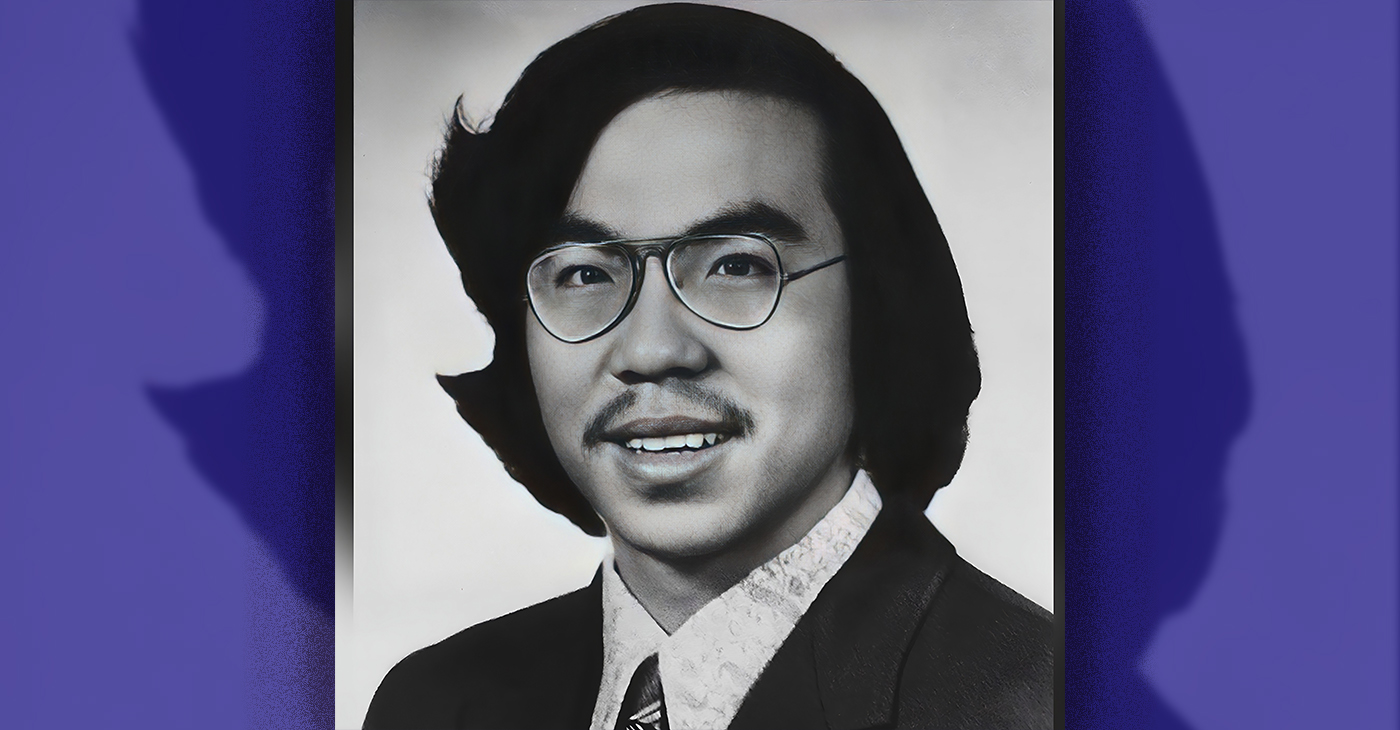Activism
Juneteenth and the Asian American Hate Crime of Vincent Chin
On Juneteenth, there was a lesson for everyone in America when pro-slavery forces couldn’t prevent all of the U.S. from getting the truth. Never give up hope. The truth does win out. That’s why Juneteenth is as close as Asian Americans get to a national holiday commemorating the fight against anti-Asian American violence.

By Emil Guillermo
On Juneteenth, there was a lesson for everyone in America when pro-slavery forces couldn’t prevent all of the U.S. from getting the truth. Never give up hope. The truth does win out.
That’s why Juneteenth is as close as Asian Americans get to a national holiday commemorating the fight against anti-Asian American violence.
I’m not taking anything away from Juneteenth.
I’m adding to it.
You’ve got to admit it’s a strange holiday.
To be true to the spirit of Juneteenth, maybe we should celebrate it not on June 19, but maybe on the 29th.
Or just put it off for three years.
That would adequately mock what actually happened. The Emancipation Proclamation, announced on Sept. 22, 1862, was the beginning of the end slavery when it went into effect 100 days later on Jan. 1, 1863.
But no one told the slaves in Texas until June 19, 1865— two-and-a-half years later.
Paperwork error? Slow wi-fi? Whites were so reluctant to give up the immoral activity of slavery in Texas they gaslighted the Emancipation Proclamation.
I remember hearing about Juneteenth when I lived in the Lone Star state in the ’70s and ’80s. (Not the 1870s, the 1970s and 1980s.)
But isn’t it amazing how the push to make it a national holiday didn’t succeed until 2021? 156 years after 1865.
And even when the holiday was announced, most people still happily lived in ignorance. A Gallup survey found that more than 60% of Americans know “nothing at all” or only “a little bit” about Juneteenth.
What you need to know is that 14 House Republicans voted against the holiday in 2021. For the most part, it’s the same group mucking things up for current House Speaker Kevin McCarthy, who deserves to be mucked up, but for other reasons, not Juneteenth.
And so, for the record, this is the original Congressional Juneteenth Hall of Shame: the Republicans who voted against the federal holiday, which leaves them looking like pro-slavery Republicans
Mo Brooks (AL), Andy Biggs (AZ), Andrew Clyde (GA), Scott DesJarlais (TN), Paul Gosar (AZ), Ronny Jackson (TX), Doug LaMalfa (CA), Thomas Massie (KY), Tom McClintock (CA), Ralph Norman (NC), Mike Rogers (AL), Matt Rosendale (MT), Chip Roy (TX), Tom Tiffany (WI).
These are the same folks who want to stop the teaching of U.S. history claiming it’s “critical race theory.” Of course, It’s nothing of the sort. The holiday simply makes us appreciate that truth and justice eventually do win out.
The good forces have worked overtime to bend that arc of justice since Juneteenth.
That’s why it’s a federal holiday and a day off for many, a reminder to stay vigilant forever.
THE VINCENT CHIN COINCIDENCE
So, we respect Juneteenth, but one particular coincidence of justice delayed must be pointed out that took place on June 19, 1982.
That’s when Vincent Chin, attending his own bachelor party, crossed paths with Ronald Ebens in a strip club in Detroit.
Ebens, a white auto worker in an industry under siege by Japanese imports, saw Chin, and his brain must have registered “Japanese,” even though Chin was Chinese American.
I asked Ebens about this in 2012 and he denies the racial subtext of the incident: “It had nothing to do with the auto industry or Asians or anything else. Never did, never will. I could have cared less about that. That’s the biggest fallacy of the whole thing.”
Really? Chin’s friends, who were there, testified to the contrary.
Ebens may have told me all that to lessen the racial aspect. But he couldn’t deny the most important fact.
After leaving the strip club, he hunted down Chin, found him, and then swung the bat at Chin’s head resulting in his death.
Now 41 years after, Ebens has never served time for the murder.
Nor has Ebens – ordered to pay $1.5 million to the Chin family in a wrongful death settlement–ever paid his debt to the Chin family.
It’s justice denied and delayed for the Chin family.
And Ebens knows he’s at fault for all of it.
“I’m as much to blame,” he admitted to me about Chin’s death. “I should’ve been smart enough to just call it a day. After [Chin and his friends] started to disperse, it was time to get in the car and go home.”
But he didn’t.
Ebens and his stepson, Michael Nitz, got to Chin in that McDonalds parking lot, and as Nitz stood behind Chin, Ebens swung the bat and delivered the fatal blow.
“I went over that a hundred, maybe a thousand times in my mind the last 30 years,” Ebens told me in 2012. “It doesn’t make any sense of any kind that I would swing a bat at his head when my stepson is right behind him. That makes no sense at all.”
The murder doesn’t make sense. Nor does the application of justice, which has only benefitted Chin’s killer.
Chin was in a coma at the Henry Ford Hospital on June 19th, the 20th, the 21st, the 22nd, and then on the 23rd, he didn’t wake up.
But an entire generation of Asian Americans did.
For those born in the Civil Rights Era, Chin was the call to social justice, an awakening. It was just the first wave.
Since then, the Asian American population has grown to more than 23 million people. And now, a new generation is discovering the impact and the importance of the Chin case, at a time when hate crimes against Asian Americans have exploded.
What we learn is our solidarity and common ground with others in America’s BIPOC communities. The most famous hate crime in Asian American history is connected to the very day, Juneteenth. It’s a sign.
In cases of justice denied and delayed, Juneteenth gives us hope.
Emil Guillermo is a veteran Bay Area journalist and commentator. He does a reality talk show on www.amok.com
Activism
Oakland Post: Week of April 24 – 30, 2024
The printed Weekly Edition of the Oakland Post: Week of April 24 – 30, 2024

To enlarge your view of this issue, use the slider, magnifying glass icon or full page icon in the lower right corner of the browser window. ![]()
Activism
Oakland Post: Week of April 17 – 23, 2024
The printed Weekly Edition of the Oakland Post: Week of April 17 – 23, 2024

To enlarge your view of this issue, use the slider, magnifying glass icon or full page icon in the lower right corner of the browser window. ![]()
Activism
Oakland Schools Honor Fred Korematsu Day of Civil Liberties
Every Jan. 30, OUSD commemorates the legacy of Fred Korematsu, an Oakland native, a Castlemont High School graduate, and a national symbol of resistance, resilience, and justice. His defiant stand against racial injustice and his unwavering commitment to civil rights continue to inspire the local community and the nation. Tuesday was “Fred Korematsu Day of Civil Liberties and the Constitution” in the state of California and a growing number of states across the country.

By Post Staff
Every Jan. 30, OUSD commemorates the legacy of Fred Korematsu, an Oakland native, a Castlemont High School graduate, and a national symbol of resistance, resilience, and justice.
His defiant stand against racial injustice and his unwavering commitment to civil rights continue to inspire the local community and the nation. Tuesday was “Fred Korematsu Day of Civil Liberties and the Constitution” in the state of California and a growing number of states across the country.
One OUSD school is named in his honor: Fred T. Korematsu Discovery Academy (KDA) elementary in East Oakland.
Several years ago, founding KDA Principal Charles Wilson, in a video interview with anti-hate organization “Not In Our Town,” said, “We chose the name Fred Korematsu because we really felt like the attributes that he showed in his work are things that the children need to learn … that common people can stand up and make differences in a large number of people’s lives.”
Fred Korematsu was born in Oakland on Jan. 30, 1919. His parents ran a floral nursery business, and his upbringing in Oakland shaped his worldview. His belief in the importance of standing up for your rights and the rights of others, regardless of race or background, was the foundation for his activism against racial prejudice and for the rights of Japanese Americans during World War II.
At the start of the war, Korematsu was turned away from enlisting in the National Guard and the Coast Guard because of his race. He trained as a welder, working at the docks in Oakland, but was fired after the bombing of Pearl Harbor in 1941. Fear and prejudice led to federal Executive Order 9066, which forced more than 120,000 Japanese Americans out of their homes and neighborhoods and into remote internment camps.
The 23-year-old Korematsu resisted the order. He underwent cosmetic surgery and assumed a false identity, choosing freedom over unjust imprisonment. His later arrest and conviction sparked a legal battle that would challenge the foundation of civil liberties in America.
Korematsu’s fight culminated in the Supreme Court’s initial ruling against him in 1944. He spent years in a Utah internment camp with his family, followed by time living in Salt Lake City where he was dogged by racism.
In 1976, President Gerald Ford overturned Executive Order 9066. Seven years later, the 9th Circuit Court of Appeals in San Francisco vacated Korematsu’s conviction. He said in court, “I would like to see the government admit that they were wrong and do something about it so this will never happen again to any American citizen of any race, creed, or color.”
Korematsu’s dedication and determination established him as a national icon of civil rights and social justice. He advocated for justice with Rosa Parks. In 1998, President Bill Clinton gave him the Presidential Medal of Freedom saying, “In the long history of our country’s constant search for justice, some names of ordinary citizens stand for millions of souls … To that distinguished list, today we add the name of Fred Korematsu.”
After Sept. 11, 2001, Korematsu spoke out against hatred and discrimination, saying what happened to Japanese Americans should not happen to people of Middle Eastern descent.
Korematsu’s roots in Oakland and his education in OUSD are a source of great pride for the city, according to the school district. His most famous quote, which is on the Korematsu elementary school mural, is as relevant now as ever, “If you have the feeling that something is wrong, don’t be afraid to speak up.”
-

 Activism4 weeks ago
Activism4 weeks agoOakland Post: Week of March 27 – April 2, 2024
-

 #NNPA BlackPress4 weeks ago
#NNPA BlackPress4 weeks agoBeloved Actor and Activist Louis Cameron Gossett Jr. Dies at 87
-

 Community2 weeks ago
Community2 weeks agoFinancial Assistance Bill for Descendants of Enslaved Persons to Help Them Purchase, Own, or Maintain a Home
-

 Activism3 weeks ago
Activism3 weeks agoOakland Post: Week of April 3 – 6, 2024
-

 Business2 weeks ago
Business2 weeks agoV.P. Kamala Harris: Americans With Criminal Records Will Soon Be Eligible for SBA Loans
-

 Community2 weeks ago
Community2 weeks agoAG Bonta Says Oakland School Leaders Should Comply with State Laws to Avoid ‘Disparate Harm’ When Closing or Merging Schools
-

 Activism2 weeks ago
Activism2 weeks agoOakland Post: Week of April 10 – 16, 2024
-

 Community1 week ago
Community1 week agoOakland WNBA Player to be Inducted Into Hall of Fame






















































